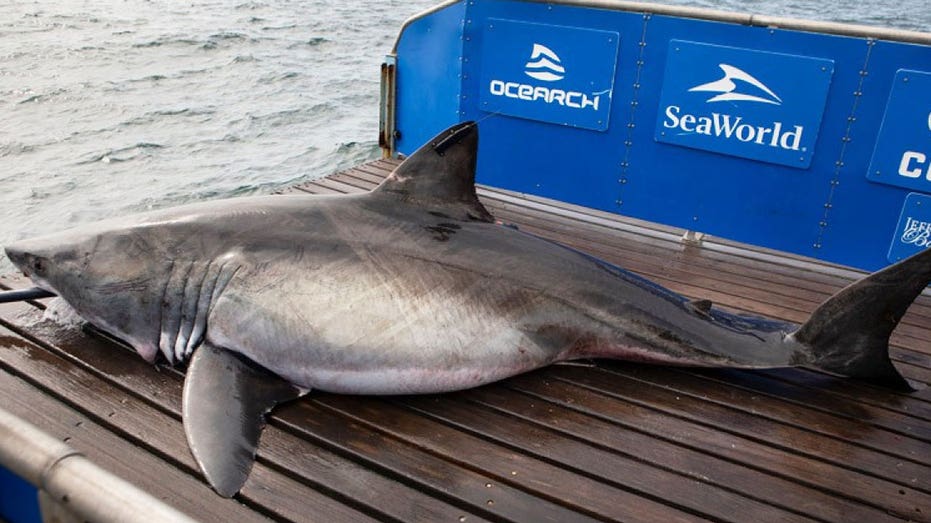The latest movement of a nearly 14-foot great white shark has been documented off the coast of Georgia.
OCEARCH, a global nonprofit marine research organization that tracks the movement of several sharks, recently announced that a 14-foot adult white shark named Mahone had pinged off the Georgia coast, just south of Savannah.
Weighing in at a little more than 1,700 pounds, Mahone was initially tagged in October 2020 during OCEARCH’s Expedition Nova Scotia 2020 near Lunenburg, Nova Scotia.
Named after Mahone Bay, the shark, according to OCEARCH, is the largest male shark tagged by the nonprofit in Canadian waters.
SHARK WITH MASSIVE JAW CIRCLES NERVOUS PADDLEBOARDER IN ‘EERIE’ FOOTAGE
Since being tagged 695 days ago, OCEARCH continues to document Mahone’s travel habits and notes on its website that the white shark has traveled 17,834 miles. The shark has traveled as far north as New Brunswick and as far south as Daytona Beach, Florida.
In the last 24 hours alone, Mahone has traveled 33 miles, according to the data provided online.
OCEARCH recently began its 46th ocean research expedition, known as “Expedition Southeast,” which will conclude on Dec. 15. The expedition, according to the nonprofit’s website, will be to “learn more about our white sharks as they migrate to the southeast United States to begin their winter residency.”
“The focus of this expedition is mature white sharks to identify what oceanographic features and diet resources are important to them and how they utilize the overwintering area. Examination of these adult animals, and particularly female white sharks during this time of year, may help us better understand the reproductive cycle for the species,” the organization noted.
OCEARCH also noted that it has “successfully tagged 92 white sharks throughout the western North Atlantic, collecting data for up to 25 science projects that have enabled us to put together the pieces of the life history puzzle of the white shark in this region.”
“Our puzzle is nearly solved, with just 8 sharks left to reach our goal of 100 sharks sampled, tagged and released in the western North Atlantic,” the group added.
























